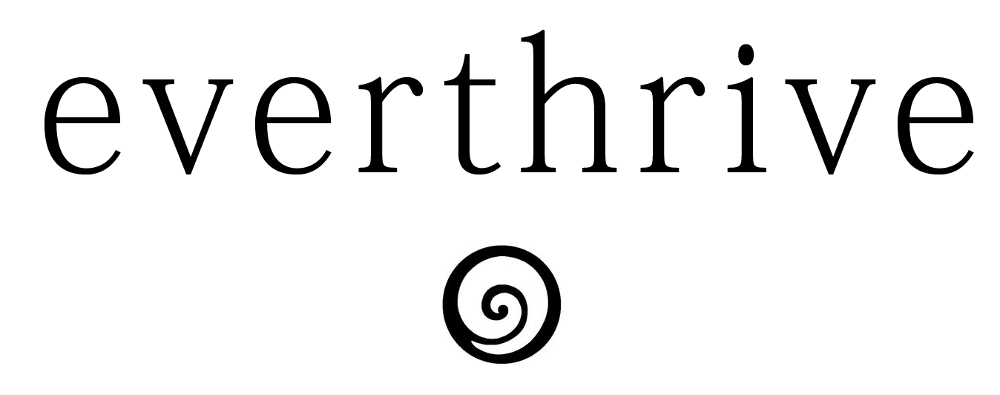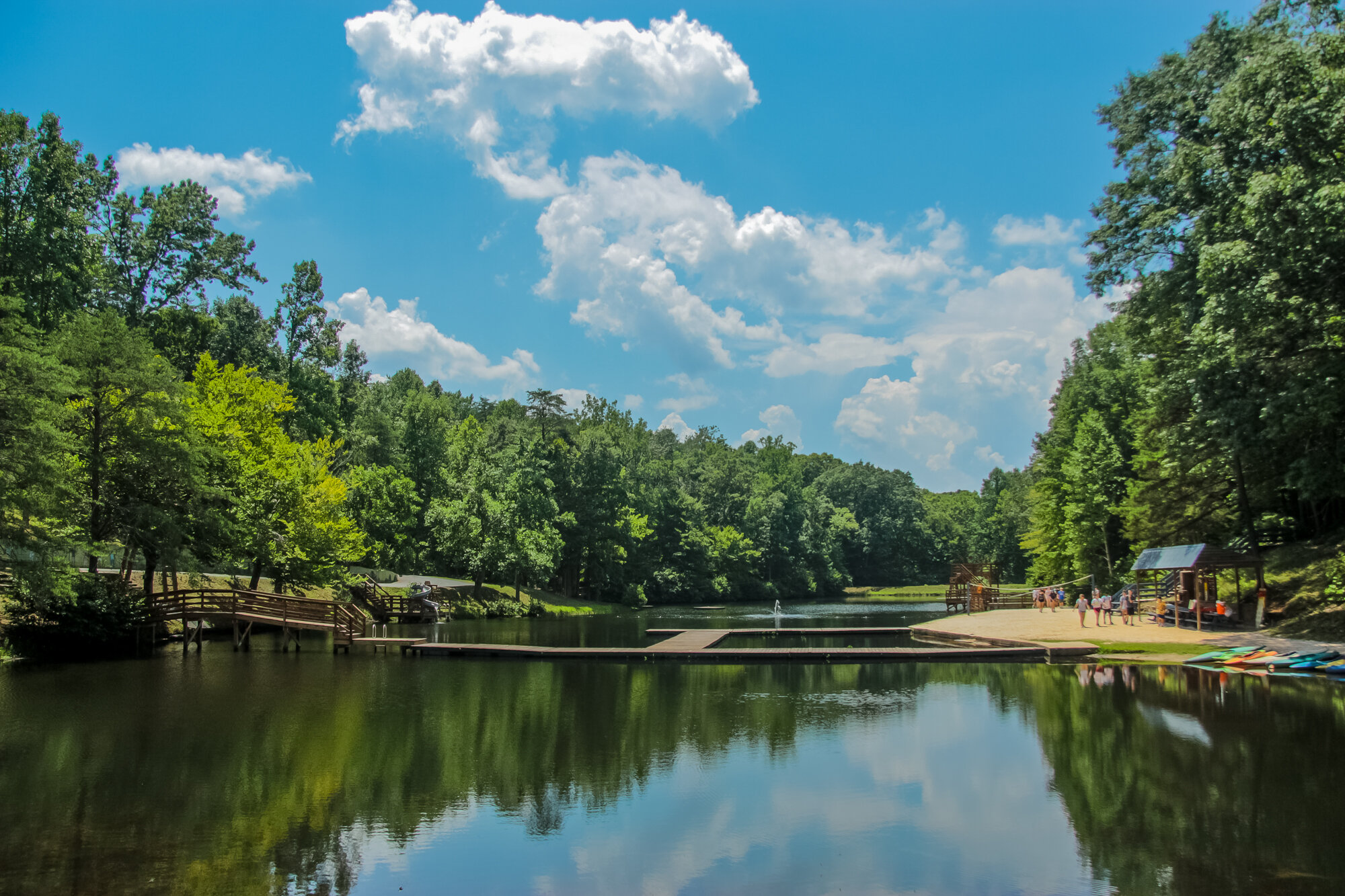Camp Friendship
As we head through these languid summer months, my mind drifts to my teenage experiences at summer camp. My brothers and I attended a wilderness camp north of Duluth, MN, where we flourished while living semi-off grid near the Canadian Quetico wildness. We became more independent and self-reliant as we learned basic wilderness survival skills along side other teenagers and young adults. By leaving suburban Chicago behind, we were able to exist within a unique community, commune with nature, test our limits, and become much stronger for it. In essence, that’s what camp is all about!
Sarah Ackenbom, Retreats Coordinator and Director of Camp Friendship in Palmyra
I recently connected to Sarah Ackenbom, Director and Retreats Coordinator of Camp Friendship located on the edge of the Blue Ridge Mountains in Palmyra, Virginia.
As a former elementary school teacher, Sarah loves guiding children through their individual learning journeys. Naturally, she feels a very personal connection to the experiences that summer camp can offer children, and she also believes that adults can have a similar transcendent experience.
There’s something about attending a summer camp that can help people slow down, focus on the essential, and connect to what’s important. Learn more about this below as Sarah shares her perspective on the grounding effects of spending time at Camp Friendship.
Ali C: How does Camp Friendship help people slow down and live more simply? How does the camp allow for a soulful connection with nature?
Sarah A: There’s something about coming to summer camp that innately allows you to breathe. Spending time outside hearing the crunch of pine needles underfoot and the smell of crisp mountain air just gives you the feeling of space that you may not find so easily elsewhere.
Whenever I leave camp for whatever reason, it’s funny that the first thing I notice now is the quality of air. Sometimes you don’t realize the importance of something until you no longer have it. The air of camp is that for me. I can breathe here, and nowhere else compares. This aura that floats through camp air is what I believe helps those who visit here to stop and reflect. There’s somehow more space for that reflection when you can breathe.
Ali C: How will the camp reduce noise to help people reflect and grow? Is there a digital detox element?
Sarah A: The sound of birds chirping replaces the need for an alarm clock and the river along the edge of our property creates the white noise people pay for on their mindfulness app without needing to look at a screen. Because of this, I’m constantly reminded of a quote from Chinese philosopher Lau Tzu: “Nature does not hurry, yet everything is accomplished.” (Random note: Just because I live and work at Camp Friendship, doesn’t mean I’m constantly living by the words of philosophers. I just read this particular quote attached to my tea bag one day and it stuck with me!)
There is a lot of noise outside the bubble of Camp to constantly produce, to superficially connect, to go, go, go. Within this world, people can slow down – technology doesn’t really fit in a place like this. Our young summer campers are required to give up all technology when they stay here. We even ask them to bring disposable cameras, you know, the ones that have the turney thing in the right-hand corner? The same stringent rules don’t apply to all retreats here, but we do offer a challenge by choice option, so to speak.
During our Women’s Retreat, there is a basket where guests can choose to place their phones when they arrive to eat each meal. Instead of hopping down the proverbial rabbit hole of social media or texting with family about where the lost soccer cleat might be, women can choose to connect with one another at the retreat instead. Since Wi-Fi is only available in certain locations on Camp, phone use is so much more intentional and meaningful. There’s enough friction to break patterns that can be created that we just don’t notice in our day-to-day where it’s so easy to pull out our phone or turn on the TV.
When you disconnect from your everyday surroundings, you’re giving yourself the chance to develop as an individual. You give yourself the priceless freedom to grow and thrive.
Why did you step away from traditional employment to manage the camp?
The short answer: In order to live my life to the fullest and truly connect in my marriage, I needed to slow down.
The longer answer: Leaving teaching was something that I never thought I would do. It was my career and a huge part of my identity. When people ask what I do, my easy automatic response is that I’m a teacher. Leaving teaching would mean leaving the sunshine my students brought to my life and leaving the classroom that I loved. It was going to mean a huge pay cut to leave a job I knew how to do and jump into something unknown. And I did it anyway.
Change can be such an exciting, inspiring, refreshing, nerve wracking thing. It can cue the best of your imagination and opens your eyes to see things in a different light than when you are simply hitting the repeat button. In this case, change felt a little like a shot of whiskey. Good, but it burned going down.
You see, I was the kid who was unwavering in what I wanted to be when I grew up. I was even in the Future Teachers of America Club as a fifth grader. Yeah, I was that kid. And when I got my first teaching job after college, I was more than ready.
I rushed around in the glorified busy-ness that I called life and did the best I could to keep my head above water. I worked at Camp as much as I could to help my family, while teaching full time. Young children just bring a light to your life in a way that nothing else does. I loved being a part of each of my student’s individual learning journeys, meeting them where they were and helping them get to where they wanted to be.
However, I didn’t love the guilt I felt if I didn’t do the most Pinterest worthy lesson, the time that was expected of me before and after school or the personal money I put into my classroom. Conformity was a drug that I was using to self-medicate and distract from what was really important in my personal life.
Pictured above: Sarah and her wife, Skye Ackenbom, daughter of founder Chuck Ackenbom.
Sarah and Skye run the camp alongside Alina Ackenbom, Executive Director and Founder/Director of Friendship Tennis Academy and wife of Camp Founder Chuck Ackenbom.
“We wanted to be more intentional with our lives, curate what we wanted life to look like and eliminate everything else.” - Sarah Ackenbom
I was stretched to my limit commuting two hours every day, working a long day at school, and coming home to work more at Camp. I was averaging about four or five hours of sleep a night. Weekends weren’t a respite, they meant more work at Camp and then most of Sunday evening meant preparing for school the next day. Skye and I had little time together, and when we did, we talked mainly about work. Every once in a while, we promised ourselves that we would only talk about personal things and stop talking about Camp or school, but it always found a way to creep back in. Ten years into teaching, Skye and I knew we couldn’t keep going this way.
Sarah and Skye Ackenbom
We knew the change that needed to happen included many difficult decisions. We wanted to be more intentional with our lives, curate what we wanted life to look like and eliminate everything else. I said goodbye to being a classroom teacher and started full time as a Director at Camp. From the burn that change creates, came so much good.
Ending my teaching career was the catalyst that allowed for further growth. What I thought I should be doing and how I should be doing it adjusted to become something new:
We slowed down and became ardently intentional about every aspect of our lives.
We started minimizing the things in our home, budgeting the money we spent, analyzing our time and where to best put our energy and talents.
I put boundaries in place for areas that distracted me from being present to create friction around bad habits. Absolutely no social media for me and Pinterest is only allowed on weekends!
We now live our lives at a pace that allows the sand to shift slowly between work and personal endeavors, all the while connecting and growing together. I am centered, grounded in exactly what matters most to me, in this new slow existence.
“Live a life of intention, not obligation” - Sarah Ackenbom
Skye and Sarah Ackenbom
To thine self be true. We celebrate Shakespeare’s Hamlet for the poignant words that seem so simple when reading them. In reality, finding your true North can be a life’s pursuit. I always have had an internal compass to guide me on my journey and land where I belong. I’m right where I’m meant to be.
When someone asks me what I do, my gut reaction is still to say that I am a teacher. The word still forms on my lips, because teaching is still a huge part of who I am in my heart. Thankfully, it is also a huge part of what I do in my work at Camp. Now, I proudly get to say that I am a Camp Director.
Ali C: What would you say to someone considering a life change similar to one you made?
Sarah A: Find the experiences that resonate with you to live a life of intention, not obligation.
Ali C: What is your hope in sharing Camp Friendship with Everthrive’s audience?
Sarah A: My hope in sharing information about Camp Friendship is to help people connect. It’s what drives me. Because maybe, just maybe, we offer something that people are searching for.
Whether you went camping as a child or not, whether you feel isolated in your life or you’ve already found your tribe, Camp Friendship might fill a hole that someone is looking to fill.
When I talk about the magic of camp, it’s true. It’s in the air here…
I’m very thankful for Sarah’s personal story about disconnecting from daily life, placing yourself in special communion with nature, and connecting with yourself and others who appreciate the essentials of life.
If you’d like to learn more about how Camp Friendship connects people and nature in a meaningful way, click any of the videos below.
Additionally, if you’d like to learn more about the concepts that Camp Friendship upholds, namely disconnecting to connect, communing with nature, or living simply, you might be interested in any of these related articles on Everthrive:
When you stay at Camp Friendship, you aren’t just renting a cabin. You’re immersing yourself in an outdoor experience with access to all our grounds provide – a private space to get away.










